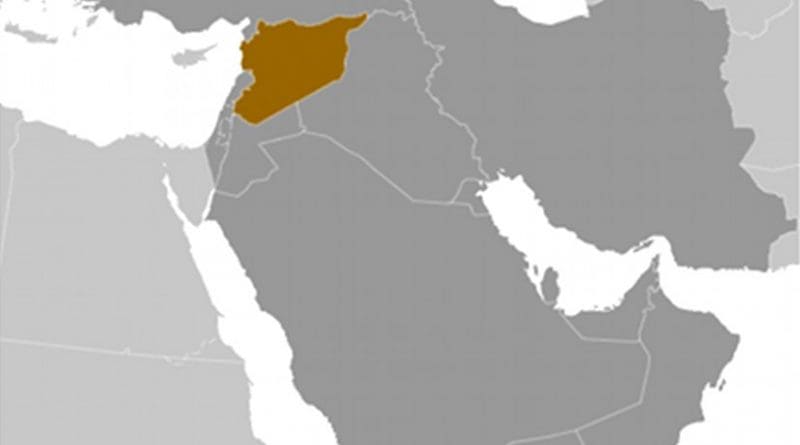Syria Denies Cluster Bomb Allegations
By VOA
By Henry Ridgwell
The Syrian army Monday slammed Human Rights Watch allegations that in recent days it has begun widespread attacks using Russian-made, banned cluster bombs.
“The Syrian army does not possess this kind of bomb,” the army said in a statement. “Such reports are baseless and a part of a disinformation campaign.”
In a detailed report issued Sunday and based on videos posted on line, Human Rights Watch said there is a growing array of evidence that Syrian government forces are using the bombs.
“Cluster munitions are prohibited around the world through a cluster-munitions treaty, but Syria appears to be using them,” said David Mepham, an analyst at Human Rights Watch. “The evidence that we have suggests that these cluster munitions came from the Soviet era. They’re a type of bomb canister and a type of bomblet that was manufactured in that part of the world.
“What we don’t know is when they were transferred to Syria, whether they have been sitting in the Syrian stockpile for the last 20-plus years, or whether they were transferred more recently,” he said.
Russian denial
But Russian Foreign Minister Sergei Lavrov told reporters in Belgium that the Syrian government is not using cluster munitions from Russia, adding “there are loads of weapons in this region…and arms are supplied there in large quantities and illegally.”
Human Rights Watch said the videos tell a different story.
On one video, a Syrian helicopter hovers over Taftanaz in Idlib province – and drops a bomb on the village. Human Rights said the separation as it falls, and the multiple explosions from the bomblets contained inside, show it is a cluster bomb.
The video, said to be taken last week, is part of a series posted online. They are impossible to verify.
Other videos show remains of bomb casings and a man displaying a collection of bomblets in Talbiseh near Homs. Another video, shot in Deir Ezzor province, appears to show a child playing with an unexploded bomblet – one of the biggest dangers, Mepham said.
“If they don’t detonate they spray over a large area of territory, a series of sort of smaller bomblets that often look quite shiny and metallic, and children often pick them up and say, what’s this thing we’ve discovered, it’s a piece of ordinance,” he said. “But then actually, on picking it up and touching it, they can detonate.”
Opposition targeted
Human Rights Watch says many of the bombing targets were near the main highway that runs between Damascus and the second city, Aleppo. Government and rebel forces are battling for control of the key route.
The opposition Free Syrian Army claims it has taken the town of Maarat Al Numan. That would enable it to cut off a key supply route for the capital. FSA fighters claim this is the start of a bigger offensive in the area.
But the rebels remain heavily outgunned. Fighter jets and helicopters pose a constant threat.
Mepham said he fears the Syrian government forces may resort to even more lethal weaponry.
“Some months ago we documented the fact that the Syrian forces were laying land mines on the very routes that people were using to escape the country, to cross the borders,” he said. “The use of cluster munitions is a further development. It’s very worrying.”


Why is nothing said when Israeli supplies cluster bombs to Georgia for use on civilians and their own troops back in 2008. It is clear that HRW has an agenda and it is connected with US foreign policy. It is not hard to understand from where these cluster bombs came from – if actually used. Look to Turkey and Georgia, one NATO member and one wanna be member – that is still on the sidelines and will be for sometime to come.
http://joni-geonews.blogspot.com/2010/11/trafficking-of-weapons-in-georgia-and.html